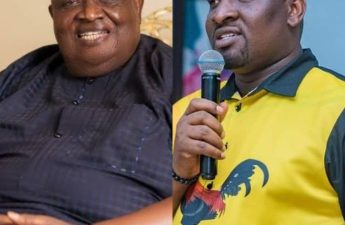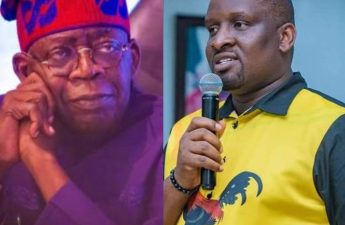Popular human rights lawyer and Senior Advocate of Nigeria, Femi Falana has said that the 48-hour ultimatum the Department of State Services gave to the Nigerian National Petroleum Company Limited to put a stop to the recent fuel scarcity in the country, is an empty threat.
The renowned lawyer made the comment on Friday morning while speaking on Channels Television’s Sunrise Daily.
In a effort to intervene on the lingering fuel scarcity, the DSS had spoken through its spokesperson, Peter Afunanya, that they had a closed door meeting with stakeholders in the downstream sector, including NNPCL and they all agreed to end the scarcity.
The spokesperson revaled that all DSS commands had been placed on red alert and would soon go after the defaulters behind the unwarranted scarcity. He added that the DSS summoned the meeting and subsequently gave the ultimatum in line with its mandate of detecting and preventing the country’s internal security threat.
While speaking during the interview, Falana said the DSS wouldn’t do anything to anybody cause they “know the people behind the scarcity.”
Falana reminded all who care to listen that the Federal Government have issued similar threats in the past and eventually did nothing.
“(As) you know, every year, at the end of the year – once it is Christmas – there must be artificial supply of fuel,” he said.
“The ultimatum will not work because there is no sanction for impunity in Nigeria.
“The State Security Service does not operate under the law in Nigeria. It does its own thing. There is nobody to call the agency to order. They will know that it’s just an empty threat because nobody is going to be arrested and prosecuted to teach a lesson.”
Mr Falana also went on to say that he is against removal of total subsidy.
“I can never (support total subsidy removal). You know why? I am saying Section 14 of the constitution – it’s not my own making – provides that the security and welfare of the people shall be the primary purpose of the government.
“So, the government has to take care of the welfare of the people and ensure that in providing subsidy for the needy, you do not enrich criminals as it is going on now.
“And that is why you have a government in place, to deal with those who are committing crimes – economic crimes and other types of crimes. And that is what is going on in our country,” he said.
He also said there was no country in the world that did not subsidize the poor.
He cited subsidy allocations in the US, which he described as the “hotbed of capitalism,”, especially at the onset of the COVID-19 pandemic.
Former President Donald Trump, on March 28, 2020, signed into law a $2 trillion rescue plan to salvage the US economy crippled by the coronavirus.
The senior lawyer also called attention to alleged corruption by known criminals at the point of oil extraction as well as during the importation of the refined product.
“The duty of the government is to combat theft from the root. And we are telling the government, just like they are doing now, they’ve gone to hire a private organisation and the revelations are simply amazing,” he said.
On solutions to the fuel subsidy debate, Falana said the National Assembly had failed in its oversight responsibilities, despite the lawmakers frequently conducting what he described as all manner of investigations on fuel supply and fuel subsidy, among others.
“At the end of the day, when the budget is presented, details are not given,” he stated. “You are simply told, ‘This is a supplementary budget increasing fuel subsidy from N443 billion to N4 trillion (for instance).’
“What are the details? Daily, how much fuel do we consume? The Comptroller General of Customs has said, ‘Nigerian National Petroleum Company (NNPC) is lying by saying it is 68 million (litres per day we consume).’
“At a stage, NNPC said it was 102 million litres per day, whereas the Department of Petroleum Resources said it was 32.8 million litres. Which of these figures are we dealing with?”



